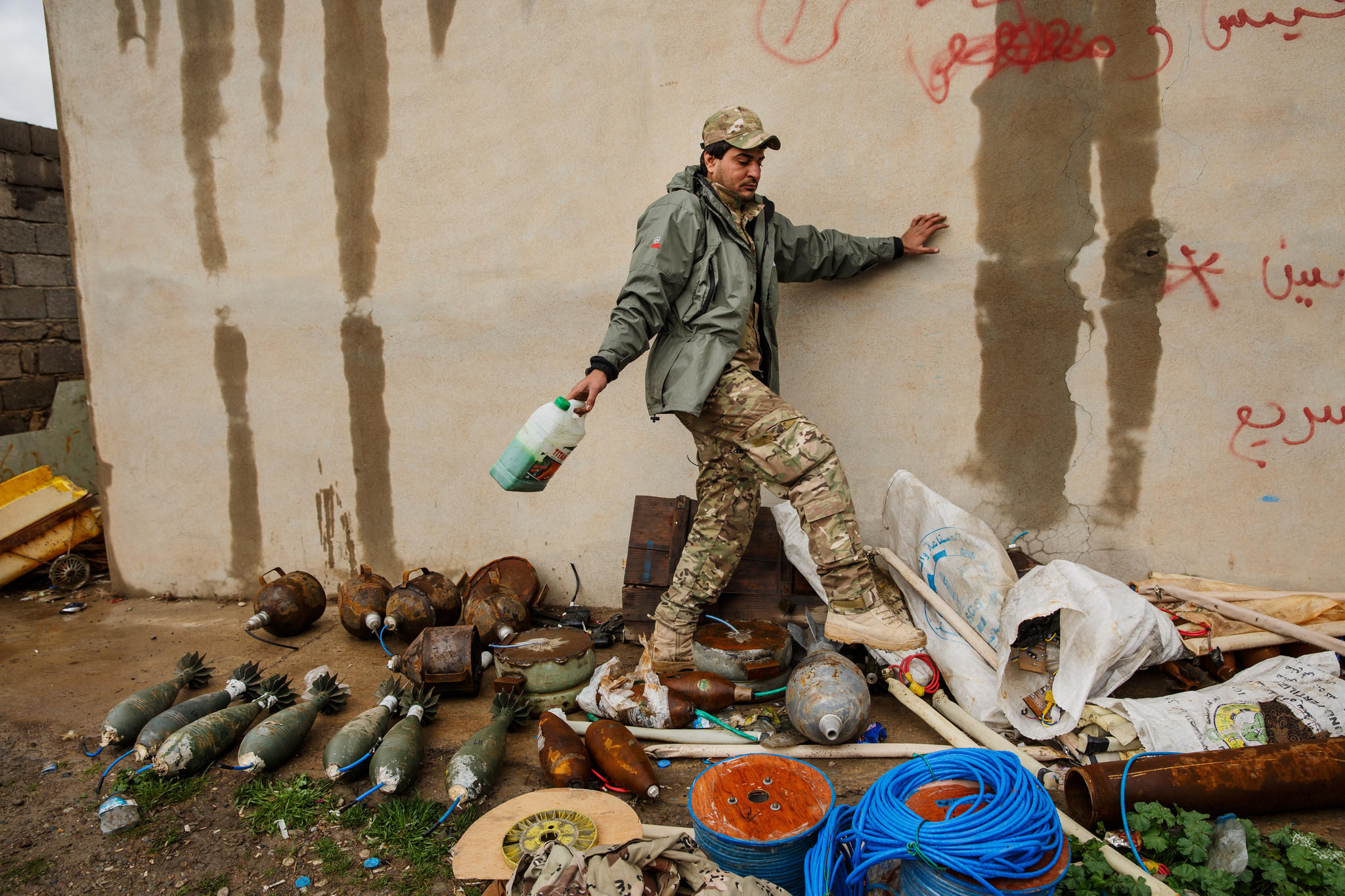By MOLLY HENNESSY-FISKE
Photography by MARCUS YAM
MAY 5, 2017 | REPORTING FROM MOSUL, IRAQ
It is only days before he is due to return home on leave, and commanders have sent him behind enemy lines for one last mission: take some of the explosives the Iraqi army has salvaged from Islamic State and resow them like deadly seeds in the no man’s land they call ard al haram — the forbidden zone.
 Islamic State infiltrators have been stealthily crossing through the deserted stretch of abandoned homes and barricaded businesses to mount attacks against Iraqi troops; the explosives are meant to stop them.
Islamic State infiltrators have been stealthily crossing through the deserted stretch of abandoned homes and barricaded businesses to mount attacks against Iraqi troops; the explosives are meant to stop them.
Like many young soldiers, Wissam Daoud, a bomb technician with the Iraqi Ministry of Interior’s Emergency Response Division, has been fighting alongside his army colleagues for three years to drive the militants out. He has tracked the evolution of their explosives through a half dozen offensives, and can identify them at a glance: the lemsawi, modified mortar rockets; kamala, which can be triggered remotely or by applying pressure; bottle bombs attached to doors; plasma bombs camouflaged as household items or debris.
His job is to render them harmless, or turn them back against the enemy, or die trying.
Daoud’s army is no longer the one that turned and fled when fast-moving jihadi militants seized Mosul in 2014. Just as the Iraqi military has hardened through training and combat, so has he.
Dying in an explosion is no longer the 25-year-old Daoud’s worst fear. That, he’s come to realize, would be painless — he carries an Iraqi flag in his pants pocket, to be draped over his body should the need arise.
What Daoud has learned to fear is a sniper’s bullet. Bombs you can see. Snipers are elusive. Their bullets leave soldiers bedridden, permanently disabled.
“Better to die than to be injured,” Daoud says. “No one cares about you in Iraq when you are injured.”
To read the entire article click here: Los Angeles Times

